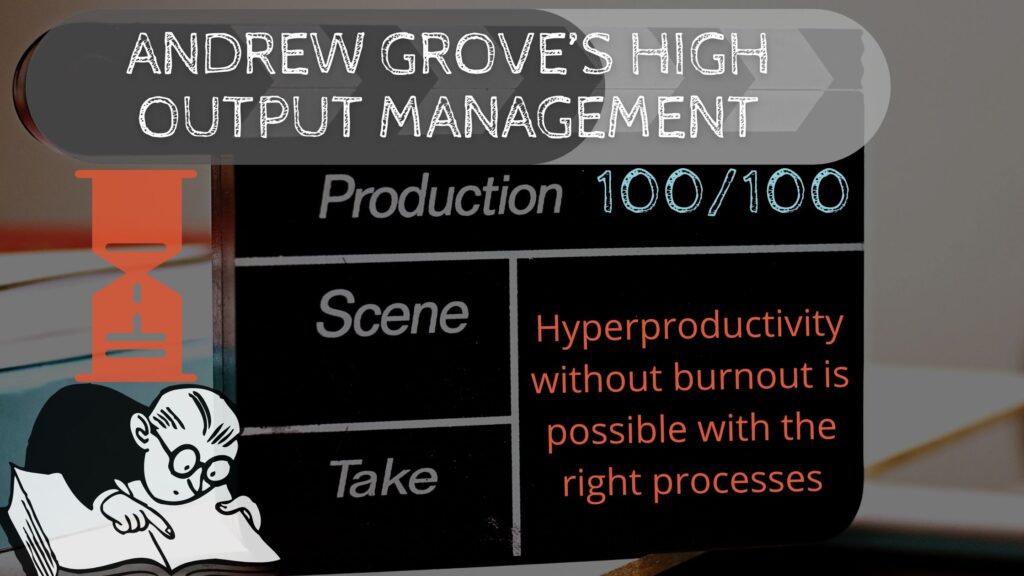The world shall feel pain – 世界に痛みを, Sekai ni Itami o.
Pain from Naruto: Shippūden utters these words, ushers in unimaginable destruction to Konaha village, and changes my life forever. My teenage head unconsciously encounters the Buddhist philosophy of pain leading to enlightenment. Watching this anime is how I began my lifelong obsession of understanding philosophy.
The world of philosophical academia is intimidating. You require exceptional intellect to make sense of the treasure trove that lays open, awaiting your interest. You need to dedicate a lot of time and energy to have actual thoughts around these philosophical concepts you eventually acquire.
In contrast, take anime. There’s a simple premise, a relatable theme, an emotional tug, a journey, engaging conflicts, drama, multiple attempts at redefining the heart of the story, a set intention and obstacle, various shades of humour (something for everyone), a bag full of emotional trauma, scars and empathy, character diversity and dynamics, and fights with a stated purpose. Using emotional storytelling, the anime focuses on accessible and non-subtextual philosophy to build the story. If you watch it actively, you are captivated by this insatiable desire to know more. There are no good or bad characters – it is all left to the audience’s preferences. Their feelings are front and centre.
This is why I wanted to write about how anime uses great storytelling to trick us into consuming philosophy. Most of these stories don’t have the ideal happy endings. They have likeable characters we eventually relate to. Cowboy Bebop’s imperfect character Spike’s humanity becomes a motif for how we all try to unsuccessfully escape our pasts. We begin caring for Spike courtesy of his comedic persona and mysterious past. His emotional dilemmas become ours. The human condition activates itself because we all have a deep understanding of the struggles of being human.
Anime often uses Nihilistic storytelling by presenting honest, non-sugarcoated plots to tell the story of failure. They make a case for the real world where talent and connections aren’t always surpassed by hard work. Even though all dreams might not come true, the anime makes us continue to have faith in people and us having the courage to fail.
Mostly, good anime offers profundity. Using vivid imagery, they pose tough questions. In Monster, we question human nature – is it good or bad? We wonder, are all lives created to be equal? There are no general answers to these questions. The anime shows us both sides and the story stays with you. You draw your own conclusions. If that isn’t philosophising, I don’t know what is…
The anime and creators mentioned in this essay are:
Naruto: Shippūden, Code Geass, Cowboy Bebop, Monster, Bleach, Koe no Katachi, Kino’s Journey, Iwakura Lain, Ghost in a Shell, Satoshi Kon, Perfect blue, Paprika, Fullmetal Alchemist, Neon Genesis Evangelion, Violet Evergarden, Banana Fish, Steins;Gate, Berserk.
The philosophies and philosophers mentioned in this essay are:
Jeremy Bentham, Utilitarianism, John Stuart Mill, Aristotle, Ethos-Pathos-Logos, Theories of social change, Haferkamp, Thomas Jefferson, Epicurean Hedonism, Intergenerational trauma, Existentialism, José Ortega y Gasset, Nietzsche, Übermensch, Glen Pettigrove, Socrates, Plato, Essential properties , Kierkegaard, George Berkeley, Idealism, Epistemology, Julien Offray de La Mettrie, Alan Turing, Imitation Game or the Turing Test, David Chalmers, p-zombies or philosophical zombies, Jean-Paul Sartre, Plato, Dualism, Donna Haraway, Cyborg Manifesto, War Theory, Thomas Hobbs, Structuralism, Amor fati, Plato’s theory of forms, Democritus, Hegel, Determinism, Principle of alternative possibilities, Gottfried Wilhelm Leibniz, David Hume, Compatibilism.
The specifics:
On Ethos
Most forms of media consist of philosophical text or subtext in some form. Ethics is the most common theme explored. A lot of anime use utilitarianism. What is right? What is wrong? How do we determine right from wrong? Utilitarianism teaches us to differentiate between what’s right and wrong based on outcomes. If the outcome of having child/teenaged soldiers fighting wars is world peace, then the social structure is justified (Naruto, Inuyasha, too-many-to-type). Most shows depict utilitarianism in a good light – the hero’s journey.
The outlier is Code Geass. In order to unite the world, Lelouch does terrible things with the best intentions and eventually becomes a tyrant. The best intentions crumble to dust if they meet bad ethos (also, execution and policy). John Stuart Mill’s philosophy of maximising utility tells us how, “…people really desire happiness, and since each individual desires their own happiness, it must follow that all of us desire the happiness of everyone, contributing to a larger social utility.”
In upholding the collective will of creating happiness, Lelouch slips. To quote John Stuart Mill, “One person with a belief is equal to ninety-nine who have only interests.” He forms an oppressive government to create a better world. This pursuit of righteousness turns into a compulsion. The contradiction of making a collective decision based on personal values looks ugly. To paraphrase the theories of social change by Haferkamp: modern problems solved within the current power structure will become corrupted in spite of reform.
A quote comes to mind, “…the tree of liberty must be refreshed from time to time with the blood of patriots and tyrants. It is its natural manure.”
Thomas Jefferson
Lelouch instigates reform to create a world fit for Nunnally, an obviously personal goal. Epicurean Hedonism simplifies things into two camps of pain (bad) and pleasure (good). This focus on securing Lelouch’s personal pleasure using mental gymnastics makes utilitarianism look bad. To counter Epicurean Hedonism, Jeremy Bentham tried using mathematics to introduce utility – before you make any choice, use the maths containing 8 variables to ensure your choice is free from the pursuit of pleasure. Who really has time for that? Pleasure is such an easy choice.
Naruto: Shippūden tried doing it too by making Sasuke Uchiha attempt to kill Naruto. Had Danzo not orchestrated the genocide of the Uchiha clan to prevent a coup d’état, the intergenerational trauma of Ashura’s and Indora’s descendants fighting each other to death could have been stopped. No great Ninja wars, no child soldiers. Most Shōnen anime create the hero’s journey using the guise of saving the world. Even when it is a journey of self-discovery, this ethos of saving the world justifies everything. We see the use of skilled character writing to depict the harsh realities of the world in an honest (and hopeful) way. As the order gently fades in the absence of chaos, as viewers, we begin experiencing empathy for detestable actions – they did it for a good cause. The anime successfully makes the story resonate by tapping into our existential fabric.
Existentialism deals with existence and human nature. It tells us how unique we are and that we have the ability to make choices. José Ortega y Gasset tells us how existentialism makes the human spirit wander. A future project – the dream life. We are always searching for something. It makes most of us anxious. If I give up the freedom to choose and instead stand for something (ideology, religion, et al.), I shall lead a stress-free life. (This is how vulnerable societies become susceptible to dictatorships.)
Lelouch says this, “Since that day, I have lived a lie. The lie of living. My name, too, a lie. My personal history, a lie. Nothing but lies. I was sick to death of a world that couldn’t be changed. But, even in my lies, I couldn’t give up in despair.”
~
We feel his existential anxiety because we all unwillingly conform to society. He lies to everyone, including himself (just like we do). His future project becomes real. He realises how everyone simply wants to live a better than average life – the world didn’t really change. He falters, gives up his freedom and chooses a comfortable, decent life. He yearns to protect his comfort leading to tyranny. We understand him because we have all made these choices. The existential confrontation brought on by experiencing this empathy makes you look at your life and question it. We can do whatever we want because we are free – did we give up the freedom or did we choose our future project?
On Pathos
The most successful stories are those about emotions, feelings and value systems. The storytelling in Anime does this incredibly well.
Imagine this: someone told you there’s this town where killing is allowed. There are known serial killers living in the town. What assumptions would you make? Kino’s Journey poses this question in one of their episodes. They use our assumptions against us. Then, they add the cherry on top by coming back to this town in a future episode. I am not spoiling this story for the philosophy lesson. Forgive me!
Koe no Katachi’s take on forgiveness saved my life. I don’t say this lightly. When we choose to forgive, we are doing one of three things according to Glen Pettigrove: excusing, justifying or accepting. We either forgive without understanding or we hold on to the anger. In rare instances, we accept, change, and move on.
Ishida and Ueno create the dichotomy. Everyone bullied Shouko who internalises all the blame. Ishida faces the consequences of his actions and internalises the guilt. His ability to understand others is gone as he is holding on to the past. He withdraws from the world. Yuzuru loses her sense of self in an effort to make Shouko, her sister, come back to life. Every single character isn’t forgiving themself. In watching these dynamics play out, we realise how we are quick to forgive others but infinitesimally slow to forgive ourselves. When a character’s life teeters on the edge, we see them forgiving each other for the first time. Largely speaking, they all accept the change and move forward. Ueno doesn’t face the consequences of her actions as people create excuses for her. She doesn’t change and continues her violent streak.
In Bleach, when Aizen and Urahara converse, we see Nietzsche’s Übermensch on display (a perfect human designed per Christian ideals). He sneers at Urahara,
“That is a loser’s reasoning. A winner has to speak not of the world as it is, but of the world as it should be.”
~
Aizen is the Übermensch who is plotting to kill the Gods (the Spirit King). When a God falls, people break free from the chains of morality and define their own meaning of life. However, as the conversation progresses, we realise how when a God falls, people lose faith. In the absence of that God, people will seek someone to look up to. The lightbulb flickers – Aizen is trying to be that someone. The desire to create the world as it should be will always come from an inherently selfish place.
If I were to selfishly ask you to jump to your death, would you? A paradox of existentialism is presented in Neon Genesis Evangelion. Sartre tells us how there is nothing standing in the way of resuming our bad choices. We are free to plunge to our deaths. Yet, we are afraid to jump. This freedom to choose scares us. The structure that helps us make sense of the world also limits us.
Berserk sees us contemplating multiple philosophies. What is the most accurate representation of reality (Plato’s theory of forms)? When we say God, are we trying to rationalise unexplainable events to a superhuman agency (Democritus)? How can we say God is a being – they aren’t finite – they are the fullest form of reality (Hegel)? Why does darkness hold a mirror (Nietzsche)? Why have we learned to internalise our cruelty? Can we choose to be different?
Speaking of choices, if you had the choice to build a time machine and go back in time, would you? Time travel is one of those thought-provoking ways of questioning free will. Steins;Gate makes us question the notion of choices. Determinism tells us how everything occurs because of the past and laws of physics. Events happen because of causes and not choices. This is where the principle of alternative possibilities steps in. It states, “A person is morally responsible for what she has done only if she could have done otherwise.”
If we think about this metaphysically, determinism and freewill cannot coexist. Gottfried Wilhelm Leibniz noted how God created the most perfect world possible – everything is predetermined. Compatibilism argues against this by noting how outcomes are predetermined, choices and will are not. David Hume explains further by explaining how the existence of desire implies humans are free and that their actions are their own. With every episode, we come face to face with the arrogance of human existence.
When forced to choose between saving Mayuri or Kurisu, Okabe is unable to choose. Kurisu chooses for him because in prioritising everyone’s happiness, Okabe made a zero-sum scenario whereas in prioritising the individual happiness of Okabe and Mayuri, Kurisu freely made her choice. Instead of being bogged down by choice, she chose freely.
On Logos
…and finally, logic.
Both Socrates and Plato philosophise about Essential properties – attributes that define an object. Everything in existence is given an essence before birth. If we follow the essence, we lead a meaningful life. Iwakura Lain questions these essential properties (just like Nietzsche and Kierkegaard).
A soul merges with the Wired (now called the world wide web). Then it attains enlightenment only to later commit a version of suicide. Ask yourself this: if a tree falls and you are not there to listen to it, did it really make a sound? That’s George Berkeley’s Idealism. As Lain navigates the Wired, a lot of other epistemological (justified belief and knowledge) questions come to mind.
Don’t we all exist in a database called peoples’ memories?
If nobody perceives our powers, are they real?
Is memory a mere record?
Are the Wired (Internet) and the real world interconnected?
Will exchanging our physical bodies for a wired persona have any impact?
Will I be me without my body?
Ghost in a Shell poses similar dilemmas. Watching a cyborg struggle with her identity, we ask ourselves: what makes someone human? My answer is how ‘humans’ treat each other.
Julien Offray de La Mettrie believed humans and machines are the same and that humans are a biological machine. David Chalmers introduces p-zombies or philosophical zombies. These entities lack consciousness and death. Alan Turing’s Imitation Game or the Turing Test aspires to separate the two. Should we? Are we creating zombies or cheap imitations of the human condition with technology?
Lain is confronted with Jean-Paul Sartre’s existentialism. Only she can determine who she is – real or not. In her final act, she does.Major Motoko Kusanagi, a ghost, has human and cyborg cells in her brain. She was modified as a child. Her greatest fear (embodied by the puppet-master) is the creation of a ghost without human cells. Plato’s dualism jumps out – can the mind and the self reside separately from the physical brain? Major’s journey takes us from her monism to dualism. She cares about what happens to her body initially but then she willingly lets it be destroyed. This is Hegelian dialectic. We see the flaw in both Turing’s and Mettrie’s interpretation.
The question shouldn’t be: Are they human?
It should be: Can one change their mind to define humanity themselves?
The show compels us to question our desire to label things – man/woman, cyborg/person, mind/soul, et al. Donna Haraway’s Cyborg Manifesto philosophies the ego of it all – we label things to protect our fragile selves.
A lot of realism is lost in anime. Satoshi Kon’s works use that to explore the duality in everything. Perfect blue sees Mima Kirigoe, a pop singer transitioning to an actor, essentially losing her mind. The version of her she portrays, the part of us we put online is how we want to be perceived by the world. That’s not who we really are. She loses her mind (so do we if we admit it to ourselves).
Similarly, Paprika unravels the human psyche with a heartwarming depth of empathy. Does it matter whether things are real (or not)?
Let’s change gears by talking about war in Fullmetal Alchemist. War Theory suggests 5 conditions:
- The war must be led by a legally recognised authority.
- The cause of the war must be just.
- The war must be a last resort only after diplomacy has been exhausted.
- There must be a reasonable chance of success.
- Only sufficient force must be used.
We have read about enough wars to know how moral laws change during war. Are soldiers responsible for the carnage or is it those who give the orders?
As the plot progresses, we get these answers as we see the soldiers and the resistance stop rationalising their actions. Killing civilians becomes a strategy used by both sides. Even when the Homunculi caused the war, it was the humans who finished it. The violence within human nature glares at us. Thomas Hobbs comes to mind: Humans are violent by nature. Everyone who fought against human nature was defeated in the end.
Violet Evergarden made me shed a lot of water weight because I just wept. Seeing this war veteran struggle to acclimate in a world affected by war was gut-wrenching. Nietzsche’s idea of Amor fati comes to the rescue as the episodes roll by – we can overcome our past without erasure by relying on acceptance. Violet comes to terms with her reality by surrounding herself with perseverance.
If you have persevered all the way to the end, thank you for reading. Anime is a content delivery system. It is a multimedia format employed to tell a story. If you give it a chance, you shall see…
The Writing Catalogue
Ideas, Words, Bestsellers




